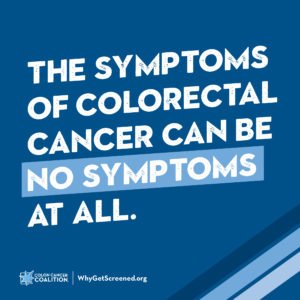
What is a VIP Colonoscopy?
VIP stands for Very Important Polyps!
Not all polyps by type, size or number are the same. Risk-stratification is now the name of the game, and there is no better time to determine your risk category by “important polyps” for you and your family. This especially true for your first colonoscopy exam, the most important one!
Did you have a VIP on your last exam(s)?? We take the time to ensure your next procedure is due. Guidelines changed in 2020-23, and many patients can wait longer before their next exam.
We can also help patients understand when an alternative stool DNA or RNA test would be appropriate for them instead of colonoscopy now and in the future as this evolves. There is a lot of confusion about these new options, and our providers are at the forefront of these evolutions.
What makes YOU A VIP?
VIP is also our way of determining if you can “skip the line”. Many healthy patients may not require a telehealth visit before scheduling their VIP colonoscopy. Answer our secure HIPAA-compliant questionnaire to see if you meet these criteria, such as:
Routine colonoscopy for screening or surveillance of polyps.
Have seen your Primary Care Provider in the past year.
Do not have symptoms or medical conditions that might require a visit to review.
Have a driver available and wish to expedite your exam
If you qualify, a representative will contact you to schedule your procedure. If you do not qualify due to existing medical conditions, you will be contacted to set up an telehealth appointment with a provider before your colonoscopy can be scheduled.
What makes us VIP?
VIP also stands for the type of experience you can expect from Pearl Surgicenter, and experienced, high-quality providers from Pearl Health Partners.
The best, easiest colonoscopy preparations: same day, eat more or colonic hydrotherapy.
The newest equipment with imaging tech that has been shown to catch important but hard to find polyps.
Private rooms, spa-like environment, modern and completely comfortable sedation.
We spend 50% more time with each patient and their procedure.
Microbiome management for colon health and polyp prevention: we’re not just doing your procedure we are improving your colon health long-term. Our team includes gastroenterology and nutrition experts in the emerging role of the microbiome in health and disease.
-
Colorectal cancer is ranked as the second leading cause of cancer death in the U.S. for men and women combined, and the lifetime risk of developing colorectal cancer is about 1 in 24. But, when detected in its early stages during a colonoscopy, colon cancer is one of the most highly treatable and preventable cancers. In fact, research has shown that many colon cancer deaths could have been prevented with a screening.
-
Because the risk of getting the disease increases with age, screening colonoscopies are now recommended for every adult beginning at age 45.* For those with a family history of the disease, or other risk factors, screening could start even earlier. For example, if a close family member – like a mother or father – was diagnosed with colon cancer at age 50, the children of those parents should get screened 10 years before the age they received their diagnosis – at age 40.
-
While colonoscopy has been the gold standard due to it’s ability to prevent polyps from growing into cancer, new molecular stool tests are becoming accurate at identifying “very important polyps”. As those tests enter our algorithms, low-risk and no-risk patients may have alternatives to screen at home. Your first colonoscopy remains the best one, as the up front risk stratification is essential to making sound recommendations as these tests evolve. We’re involved with national organizations at the forefront of these changes and understand them well. We spend the time necessary before your procedure to ensure best practices are advised. If you have had prior exams, we’re happy to review your data and make appropriate recommendations. We’re excited that this new era will increase the ease of preventing cancer while helping to ensure those that undergo colonoscopy receive the most benefit.
-
Performed under light sedation, a colonoscopy is a procedure that allows a gastroenterologist to look at the inner lining of your large intestine – or colon. The physician uses a thin, flexible, lighted instrument called a colonoscope to visually inspect your colon for inflamed tissue, ulcers, bleeding, and any abnormal growths (polyps). Not all polyps found during a screening are precancerous or cancerous, but over time, they can grow and become cancerous. So, when polyps are found, they are removed at the same time to prevent cancer from forming.






